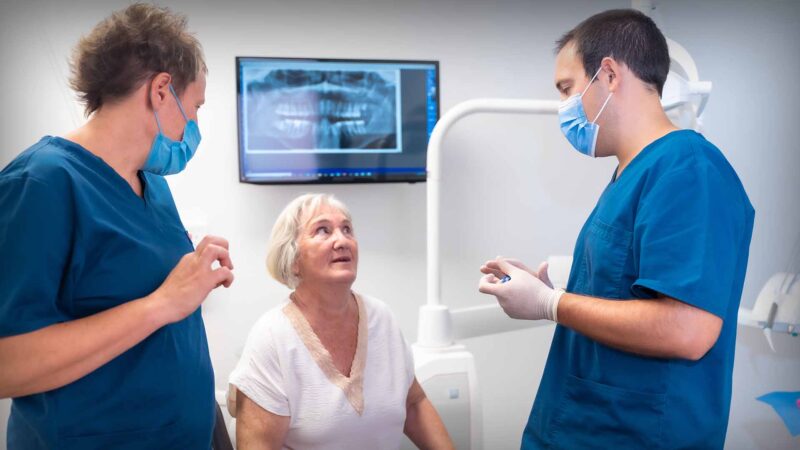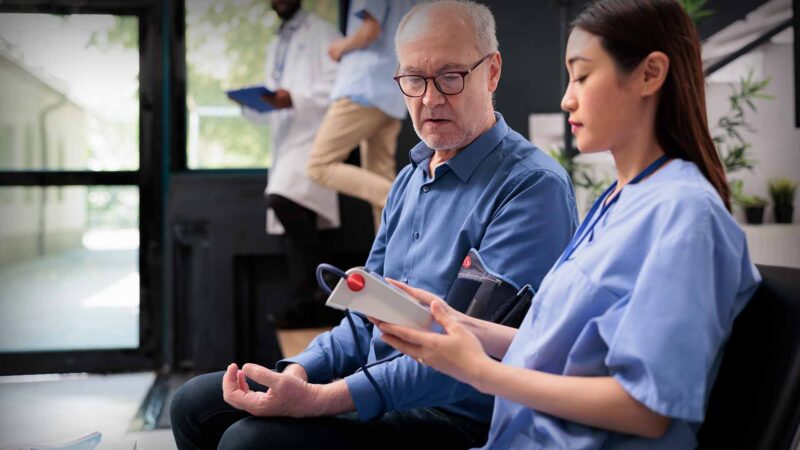ALLIED HEALTH FLOURISHES IN REGIONAL AND RURAL VICTORIA Gen Health Hamilton serves local community and rural outreach with range of allied health services
With
Jessica Fishburn,
Physiotherapist & Director
Gen Health Hamilton, Victoria
Carl Joyce,
Podiatrist & Director
Gen Health Hamilton, Victoria
AUSTRALIAN HEALTH JOURNAL SEGMENT
Filmed in Hamilton, Victoria | April 2025
Genhealth Hamilton was established in 2015 in regional and rural Victoria. The practice offers a range of services including physiotherapy, podiatry, occupational therapy, exercise science, and group classes such as clinical reformer therapy and clinical Pilates in Hamilton, which has a population of around 10,000. The clinic also serves a wider community within 100 kilometre, reaching rural residents and local industries.
The clinic caters to both private-paying patients and compensable clients referred by GPs or government-funded programs like NDIS and WorkCover. They address various health concerns, particularly in women’s pelvic health, with the clinic being one of the few in the region that specialises in this area.
Genhealth’s mission is to strengthen the health of the local community through a collaborative approach, allowing patients to access multiple services in one location. The multidisciplinary team is notably young and dynamic, contributing a vibrant energy to their healthcare delivery. The clinic has successfully reached approximately 9,000 of the 10,000 people in the community, showcasing their commitment to improving health outcomes.
The founders, initially four young women, took the risk to realise their vision for allied healthcare, turning it into a successful and community-focused business.
Australian Health Journal spoke with two Directors about the practice, the staff and the community they serve.
Source: Written by AUDIENCED from transcript
Filming credit: The Social Connection
You Might also like
-
New option for management of high-risk soft tissue sarcoma of the limb
SARC032 is the first completed randomised clinical trial of its kind and has demonstrated compelling evidence to integrate immunotherapy, with the standard treatment regimen of radiotherapy and surgery for patients with grade 2 or 3, stage III soft tissue sarcoma of the limb.
-
Dental and oral health care priorities for the elderly
In 2023, there are a number of changes occurring in dental services including the start of a new Senate inquiry and new registered nurses in residential aged care. Yet in the meantime there are gaps and delays in dental and oral health interventions for elderly Australians, unless training is more widely deployed.
Australian Health Journal spoke to Leonie Short, a dental therapist working for Seniors Dental Care Australia on what she considers are dental and oral health priorities for the elderly, based on her work in the aged, home and disability sectors.
-
Unleashing the potential of Paramedic skills and knowledge
According to a prominent paramedicine academic and researcher, paramedics have the potential to provide much-needed care in the community, changing the traditional healthcare model. Research points to paramedics having a wider healthcare workforce impact based on their ability to identify and fix problems 24/7.
Dr. Brendan Shannon is Head of Postgraduate Programs in the Department of Paramedicine at Monash University and a member of The Australasian College of Paramedicine. His interests including refining healthcare models, to ensure underserved communities receive requisite care. These alternative care pathways, like outreach programs, can work out of hospitals to provide care in underserved communities with social and complex chronic conditions.



